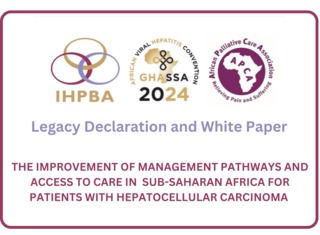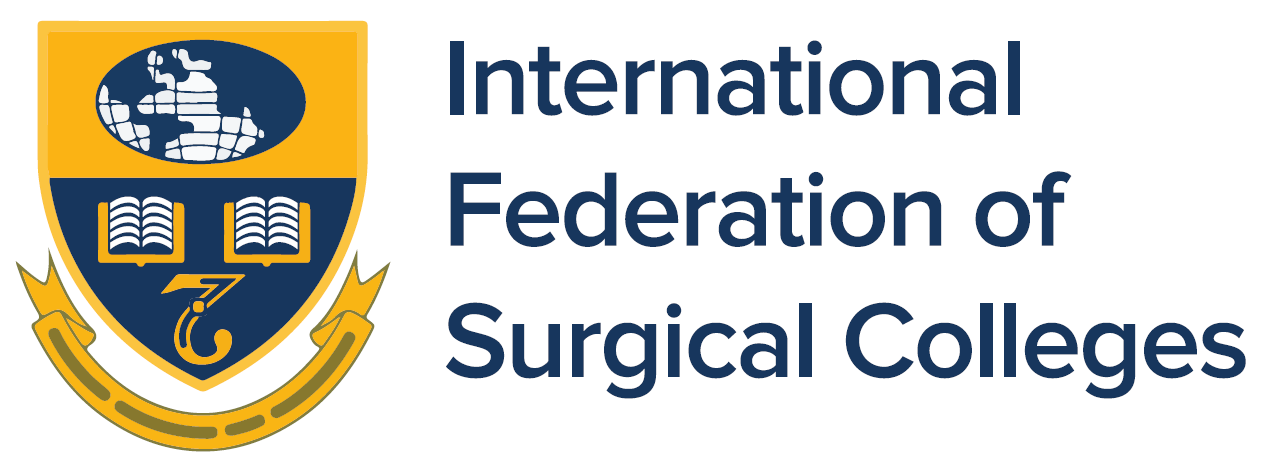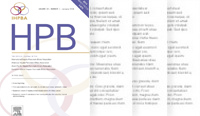International Hepato-Pancreato-Biliary Association
Legacy & Global Collaborations
IHPBA 2024 Legacy Declaration and White Paper
What is Congress Legacy
Congress Legacy is defined as the positive, long-term contribution that international conventions are leaving behind for the benefit of the association, its community, the host destination and society at large.
IHPBA’s Commitment to Congress Legacy
During the New York meeting in 2022, IHPBA held a strategic planning session which focused on the legacy of our international congresses. The biennial international congresses offer unrivalled opportunities to catch up on all that is important in HPB practice and rightfully represent a highlight in the calendar. The strategic planning group agreed that it was important to build on the interest generated by congress.
The Association has now made a commitment to effect meaningful and long-lasting change which reflects IHPBA’s vision, mission and goals in the regions or continents where congresses are hosted.
IHPBA 2024 – Congress Legacy Initiative
The 2024 World Congress legacy initiative focused on the improvement of management pathways and access to care in sub-Saharan Africa (SSA) for patients with Hepatocellular Carcinoma (HCC).
Why are we focusing on HCC?
Primary liver cancer disease has particularly devastating consequences in SSA. The predominating risk factors which included chronic hepatitis B virus (HBV) infection, often acquired at birth and aflatoxin exposure (a toxin that is produced by fungi that contaminate agricultural crops such as maize and peanuts, are different from the rest of the world. In high income countries where primary liver cancer typically occurs in more elderly people, 40% of patients will be treated with curative intent, and approximately 70% will be alive at 5 years. In SSA, primary liver cancer is more commonly diagnosed in younger people, as early as in their twenties and is the second and third leading cancer in men and women respectively. Being one of the deadliest cancer forms, 36 592 of an estimated 38 629 patients on the sub- continent who were diagnosed with HCC in 2020 died. Most patients will survive less than 2.5 months. In less than 1% of patients curative treatment will be offered.
2024 Legacy Project Activities and Outcomes

The International Hepato-Pancreato-Biliary Association (IHPBA) united with the African Viral Hepatitis Convention (AVHC), and the African Palliative Care Association (APCA) in Cape Town, to issue the Legacy Declaration on "the improvement of management pathways and access to care in sub-Saharan Africa for patients with Hepatocellular Carcinoma".
The declaration highlights alarming statistics, such as the region having the world's highest incidence rates of HCC and a median survival of only 2.5 months post-diagnosis. It calls for urgent action to address chronic viral hepatitis, a major cause of HCC, and improve vaccination, diagnosis, and treatment access.
Key recommendations include:
Introducing Hepatitis B Birth Dose Vaccination: To prevent mother-to-child transmission, countries are urged to include monovalent hepatitis B birth dose vaccination in their immunization programs.
Enhancing Hepatitis B Vaccination Coverage: Strengthening national immunization programs to achieve 90% coverage.
Improving Linkages to Care: Providing antiviral treatments for those with chronic hepatitis B and C infections.
Establishing Screening Programs: Implementing early diagnosis and surveillance for at-risk populations to allow for curative treatments.
Expanding Treatment Capacity: Increasing resources for systemic therapies and palliative care to improve patient outcomes.
Supporting this declaration is a comprehensive white paper titled "The Improvement of Management Pathways and Access to Care in Sub-Saharan Africa for Patients with Hepatocellular Carcinoma."
This document provides an in-depth analysis of the challenges and solutions for HCC in the region. Authored by experts including Eduard Jonas, Martin Smith, Chris Kassianides, Emmanuel Luyirika, and Wendy Spearman, the white paper outlines several critical points:
Epidemiology and Risk Factors: Chronic HBV infection, dietary aflatoxin exposure, and limited healthcare infrastructure contribute significantly to HCC in sub-Saharan Africa.
Prevention Strategies: Emphasizing primary, secondary, and tertiary prevention through vaccination, screening, and post-treatment surveillance.
Multidisciplinary Approach: Advocating for a comprehensive approach involving hepatologists, pathologists, radiologists, oncologists, surgeons, and palliative care specialists.
The white paper underscores the need for a concerted effort from healthcare providers, policymakers, advocacy groups, and industry partners to address these challenges and improve outcomes for HCC patients in Sub-Saharan Africa.
IHPBA is proud to be part of this vital initiative and is committed to driving progress in the identified areas to enhance patient care and outcomes.
Lancet Oncology
The following news piece was published in the Lancet Oncology. To view the news piece click here
2024 Legacy Partners

The IHPBA Foundation has partnered with the International Federation of Surgical Colleges and Societies (IFSCS) to add hepatitis/HCC to the IFSCS advocacy programme at the WHO. A concept note which outlines the issues has been drafted and will be sent to all African Union delegates at the World Health Assembly in Geneva in May, together with a request to raise this in a statement at key points in the agenda. We hope that if this is raised multiple times, the issue of Hepatitis/HCC will be recognised by the WHO, which will help us progress the objectives detailed above.
The following video shows the presenation by Dr Fanus Dreyer of IFSCS to the World Health Assembly in Geneva in May 2024. To view the video click here.
Ongoing Commitment
The baton for the ‘HCC in SSA legacy project has been handed to E-AHPBA to continue the efforts in their region, as IHPBA’s focus will shift to the next World Congress in Singapore 2026.
IHPBA 2026 Singapore Legacy Project
HCC is also a significant problem in many Asian countries, and it has been agreed that the HCC legacy theme will be continued for the Singapore Congress in 2026, there will also be a focus on ethical aspects of living donor transplant. Further details on the 2026 Legacy Project will be posted in due course.
Corporate Partners
If you are interested in becoming a Corporate Partner of the IHBPA please contact industry@ihpba.org
Find out more


